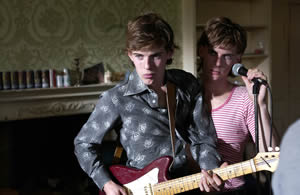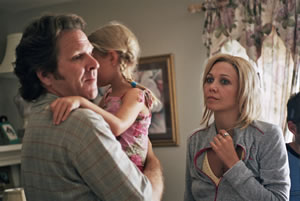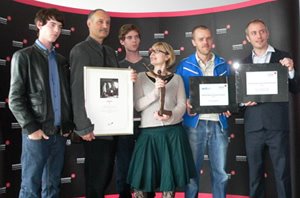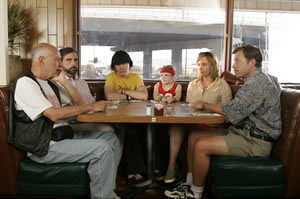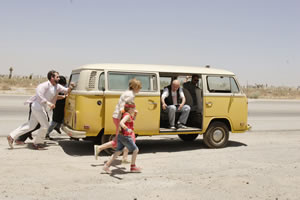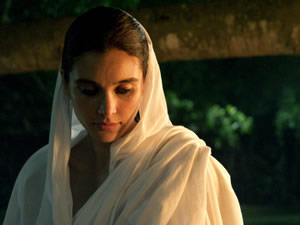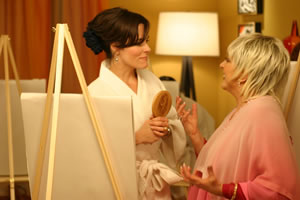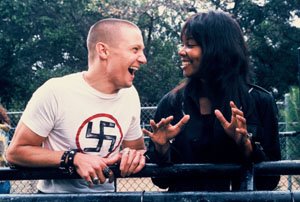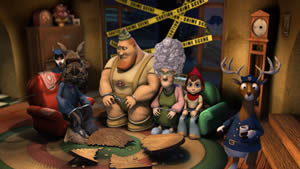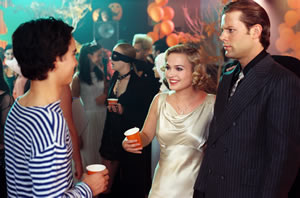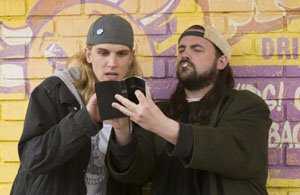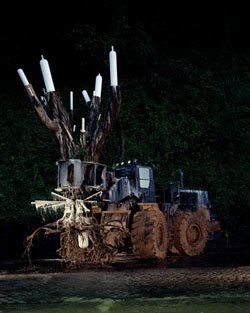Part of film festival experience is seeing films that would rarely get distribution outside of their home countries, and even then on a very limited arthouse cinema release. The films I'm talking about are not independent and mini-major releases that often get called arthouse but movies that are often personal, sometimes experimental, projects that don't follow the current, common perception of movies as linear stories, with good acting and cinematography. Which is not to say some of these don't have any, or all, of these qualities but many times these films take a great deal of willpower to sit the whole way through. Here are some that I saw, for better or for worse.

HOUSE OF SAND (Casa De Areia)
This story is about three generations of women, grandmother, mother and daughter, who live in an isolated part of northern Brazil between 1910 and 1969. A pregnant woman follows her eccentric husband, her mother and a group of settlers to the sand covered location, hoping to start a fresh life. A house is built, but with the appearance of a group of runaway slaves, the rest of the settlers leave. Before long the woman is left alone with her daughter and her mother. As the years pass, time and the elements take their toll on the grandmother, leaving the woman to raise the daughter on her own, with only the escaped slaves as neighbours.
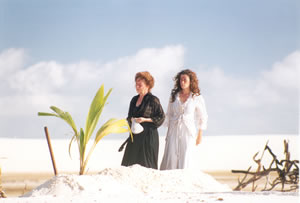
The story unfolds slowly. There is very little action in this desert setting, and the story takes huge jumps in order to cover the long time span. Real life mother and daughter actreses, Fernanda Montenegro and Fernanda Torres, play the different generational roles, which does get occasionally confusing, but the strength of their relationship and acting carries the film. But the star of the film is undoubtedly the stark scenery and the beautifully composed cinematography. The long, lingering shots of endless sand are reminiscent of
Lawrence of Arabia.
The movie is the antithesis of the Hollywood blockbuster and the perfect antidote to action overload. If you want to see a meditative movie that highlights the inner strength and tranquility of femininity, there are worst ways to spend two hours on a wet afternoon.
Cineworld, Edinburgh
Saturday 19 August 21:00
Tuesday 22 August 17:00
SEVEN HEAVENS (Sieben Himmel)
The blurb for this German film made it sound interesting, a trap I keep falling into with these types of films. A young goth girl is drawn into a covert relationship with a nightwatchman, whom she discovers has pornographic pictures of her on his computer, but she doesn't know how they got there.

The film plays with the timeline continuum, which tends to confuse more than add mystery. But it is the cinematography that renders it almost unwatchable. Shot on video in an almost monochromatic palette of dark, muted hues, using a lens that tends puts most of the image out of focus. While this may be intended to give the film a surreal, dreamlike quality, it just put me to sleep.
It was an interesting idea, but badly executed.
Filmhouse 3, Edinburgh
Monday 21 August 18:00
Wednesday 23 August 21:00
BLACK SHEEP (Schwarze Schafe)
Another German film, this one has a more linear story, although a multi-threaded one that follows the lives of five different groups of characters in Berlin. Shot in black and white, with the occasional flash of colour, the movie starts with a superb scam in a luxurious hotel restaurant.
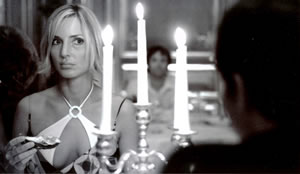
The film shows the diversity and poverty of the German city since the wall fell. From a trio of horny Turkish youths, to a pair of wannabe satanists to a disgruntled tour operator, the stories are all self-contained but occasionally overlap to give some continuity to the film. Being a European film it is not always nice things that happen to the characters, and inevitably you don't really care either, which does make all rather pessimistic, even if the director does try to end the film on a more positive note.
This multi-threaded style of storytelling has become quite popular following the success of
Pulp Fiction, but few, if any, have matched Tarantino's knack for great dialogue and pop-culture references. Somehow, California sunshine makes these complex, if sometimes violent and harrowing tales all the more viewable than the dismal grey of Berlin.
Black Sheep does try to be funny and ironic, and maybe it is to German audiences, but it doesn't work that well in a country that has mastered irony.
Filmhouse, Edinburgh
Saturday 19 August 22:00
Tuesday 22 August 21:00
